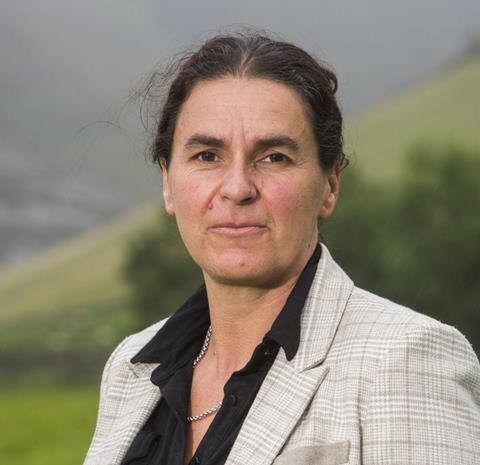The Scottish red meat industry’s important role as a model of sustainable, nutritious food production on the global stage has been emphasised by Kate Rowell, Chair of Quality Meat Scotland (QMS).

Mrs Rowell pointed out that the Edinburgh University study, due to be published on 13th August, looks at worldwide data and focusses on loss of tropical habitat to livestock farming. The report’s blanket recommendations are not applicable to Scotland given the Scottish red meat industry produces quality beef and lamb from the grass and rough grazing which make up around 80% of Scotland’s agricultural land which is not suitable for cereal, fruit or vegetable production.
“It is vital to note that Scotland’s sustainable livestock production systems differ to others in other parts of the world,” said Mr Rowell. “Scotland’s grassland acts as a carbon sink and grazing animals provide habitats for wildlife and help to maintain the landscape.
“Scotland also has no issue with water use, unlike other emerging countries,” she added.
Mrs Rowell also highlighted that it is important to put greenhouse gas emissions from livestock farming in to context and ensure that people are fully informed about the facts on our industry.
“According to the Committee for Climate Change, transport, energy and power account for approximately 68% of UK greenhouse gas emissions whilst livestock farming accounts for around 5%,” said Mrs Rowell.
Mrs Rowell added that the prevailing media coverage of the plant-based agenda, despite the fact that 95% of people choose to have meat in their diets, is creating public confusion on red meat’s role in a healthy diet. In fact, average intakes of red meat in Scotland are already below the current UK NHS guidelines of up to 70g per day or 500g per week.
“Red meat is a valuable natural source of protein, iron, zinc, B vitamins and essential amino acids and we should continue to enjoy Scotch Beef PGI, Scotch Lamb PGI and Specially Selected Pork in the knowledge that it has been sourced from selected Scottish farms where sustainable production methods and high animal welfare are a priority.
This story was originally published on a previous version of the Meat Management website and so there may be some missing images and formatting issues.















